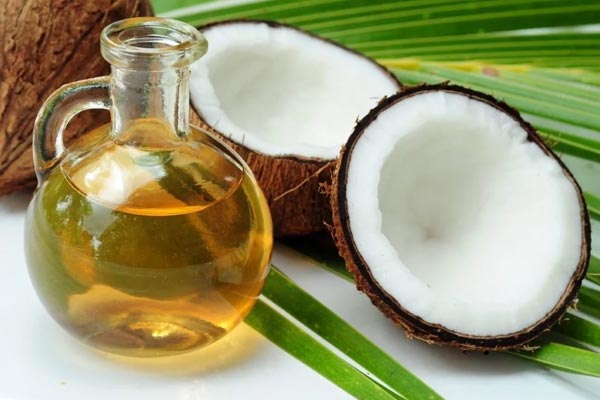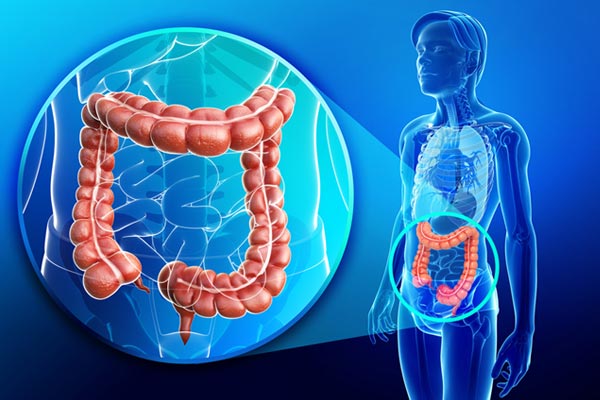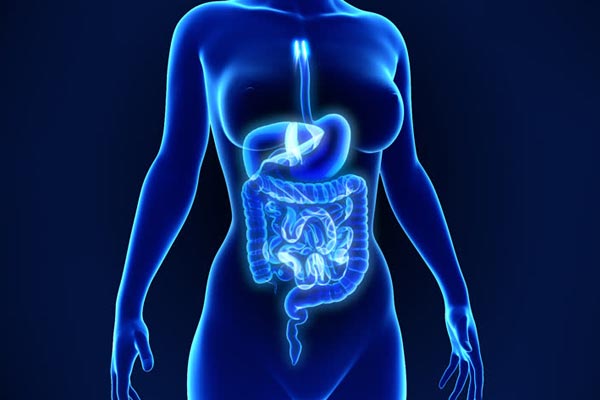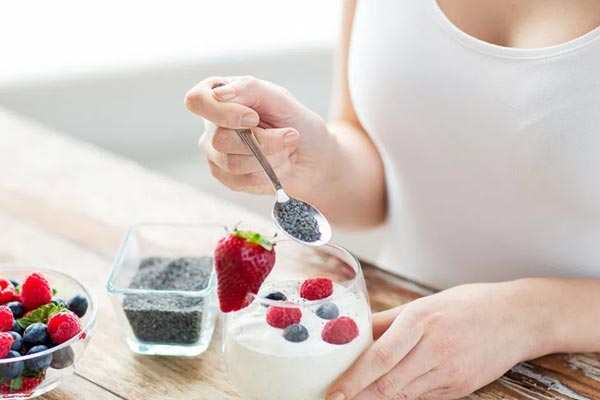Are you aware that the human body is primarily made up of bacteria? This may sound like a frightening fact, but you’ll be happy to know that not all bacteria is bad for the body.
Although it’s common knowledge that some strains of bacteria can lead to illness, we can also enjoy a thriving population of healthy bacteria, too.
What is Gut Microbiome Anyway?
Pronounced micro-BYE-ohm, this term is often used to describe the microbes that are present in a community. In a gut sense, microbiome refers to the ecosystem of bacteria that dwell in the stomach.
Just like any other body system or function, the community of gut bacteria and fungi starts developing and strengthening at birth.
As our bodies begin to grow and our dietary needs start to shift, the gut becomes exposed to different types of bacteria.
Each strain has a different role in digestion; some bacteria help the stomach process fiber, some process natural sugars, and others expand to support other systems of the body.
The digestive tract not only manages food and waste but influences the immune system and brain, as well.
Being aware of the gut microbiome and its effect on the body as a whole helps us maintain health and balance in the body and mind.
Why is the Human Microbiome Important?
To better understand the gut microbiome, it’s best to take a step back and consider the microbiome of the human body as a whole.
This includes all bacteria, viruses, and fungi that live in and on the surface of the body.
Common areas for bacteria to grow to include moist areas, such as the mucous membranes (but most of the body’s bacteria can actually be found in the large intestine).
Although we can’t see these microorganisms with the naked eye, they’re constantly busy – either affecting digestion, putting the immune system to work, or protecting the body from unhealthy pathogens.
Interestingly enough, these microbes have a bit of a mysterious existence; very few of these microbes have been identified or studied in depth, which makes their purpose and presence all the more intriguing.
So intriguing, in fact, those researchers have funded an official foundation for the exploration of this field of study.
Launched in December of 2007 by the National Institutes of Health, the Human Microbiome Project aims to explore, research, and document microbes and the effect that each has on the body.
Currently, researchers are using both advanced laboratory technology to create favorable conditions for microbe growth and assistance from human volunteers to study microbes in an organic environment.
This huge effort to explore the human body’s microbiome and its impact on health and disease will undoubtedly pave the way to even more advanced research, paving the way to medical progress that’s beyond our imagination.
To Swab or Not to Swab?
As the health community becomes more aware of the importance of gut microbiome, various testing services have sprung to life.
Previous to the booming interest in gut flora, the only method for microbial analysis was acting as a volunteer in an academic study.
Although this method proves useful for researchers, volunteers rarely get the opportunity to learn the results after the fact.
Now, you can have your collective body microbiome tested by simply swabbing your skin and sending it in for analysis.
Testing the gut microbiome proves to be a bit more involved, requiring a fecal sample as well.
Why is it so important to take a peek inside the flora of the gut? Through the advancement and precision of modern biological research technology, it’s possible to identify bacteria in the gut that may be influencing illness and disease.
Those who experience digestive or gastroenterological issues, such as Crohn’s disease, Irritable Bowel syndrome, stomach pain, and indigestion may get a glimpse into the origins of their illness and the factors that contribute to it.
Some popular genetic tests include insight into genetic markers that may offer insight into disease, but gut microbiome tests go much deeper, including comprehensive charts and findings that detail existing conditions, comparisons that measure up to healthy participants, and insights on diet and weight.
Testees may also find a link between gut health and chronic fatigue, arthritis, mental issues, and other seemingly-unrelated conditions.
So, in a nutshell, you choose a reputable microbiome testing service, receive a submission kit with instructions, send your sample to the lab, and wait a few weeks for the results.
The report is usually made available online, and many testing companies will even send a copy of the findings straight to your physician.
In addition, some insurance companies may offer partial or full coverage for this medical service.
Easy Ways to Make Your Gut Happy
The state of your gut microbiome can influence nearly every aspect of your body. From your weight to your mental state, this bacterial community has a hand in overall health and wellness.
The obvious place to start is diet, as what goes into the body heavily impacts gut flora. You are what you eat, after all! Some things to steer clear of are:
Fluoridated Water
Fluoride may be hard to avoid, but its presence in the gut can largely affect the bacteria population. Opt for filtered water, avoiding the tap whenever possible.
Processed Food
Foods that are stripped of their nutrients through over-processing do the digestive system little good, and can actually impede the growth of good bacteria. Aim for fresh, whole, organic foods and beverages to encourage balanced flora in the gut.
Sugar and Chemical Sweeteners
Every time we consume unnatural sugar, we unknowingly jump-start the population of bad bacteria in the body.
Overconsumption of the sweet stuff can overrun the gut with yeast, leading to fatigue, brain fog, and sugar addiction.
Antibiotics
Although antibiotics are considered to be a miracle cure for infections, most people aren’t aware that taking them not only wipes out the bad bacteria but obliterates the good, too. It’s wise to take probiotics alongside antibiotics in order to repopulate the gut’s healthy flora.
Aside from what goes into the stomach, it’s also important to consider the outside factors that contribute to gut health:

Stress
If the gut can be considered the lower brain, it’s no surprise that the state of the higher brain (the mind) greatly impacts it.
Quite often, in times of great stress or worry, we experience gut disturbances. From “jitters” to indigestion, our mental activity can do quite a number on the gut microbiome.
This is due to the fact that the body shuts off certain functions and halts systems when it’s placed in a flight or fight situation, lessening the blood flow to the digestive system.
Opting for quiet, stress-free environments does wonders for both the gut and the mind.
Poor Sleep
Once again, the strong connection between the gut and the mind must be considered.
The two are not only linked figuratively but literally – the stomach is connected to the brain via the vagus nerve.
Studies have found that lack of sleep can lead to a serotonin imbalance, which affects the gut as well as the brain.
In addition, recent findings have concluded that the stomach goes by its own circadian rhythm, which ideally should be in harmony with the rest of the body’s daily and nightly functions for proper rest.
Toxins
Our environments are swimming in pathogens; some of which can break through the body’s defense mechanisms no matter how hard we try to keep them at bay.
A regular “detox” can help create a level playing field for the gut flora, encouraging the growth of good bacteria and starving the bad.
Although there’s no shortage of detox fads and programs available, you can keep it simple by trying an organic, plant-based cleanse.
To further emphasize the importance of food for gut health, let’s explore some “superfoods” that can enrich gut microbiome:
Asparagus
This crunchy veggie not only fills the body with insulin and magnesium, it also helps heal leaky gut syndrome.
Garlic
Adding some garlic powder or freshly-minced garlic to meals can enhance overall gut health. Its antifungal properties help banish bad bacteria while supporting immune functions.
Aloe Vera
This miracle plant is not only useful as a skin salve, it contains anti-inflammatory properties that help soothe the gut, as well, healing conditions such as yeast overgrowth, IBS, stomach ulcers, and other digestive disorders.

Coconut Oil
Coconut oil has fast become the go-to superfood for just about every ailment imaginable. This miracle liquid increases good fats within the body while treating and preventing Candida, ulcerative colitis, and inflammation in general.
Chlorella
Chlorella, fiber-rich algae, is considered a “perfect” food that creates a favorable environment for good bacteria to grow. It’s also considered to be a healthy, natural alternative to man-made antibiotics.
Natural Probiotics
Although we’re faced with unlimited options when it comes to probiotic supplements, there are various foods that naturally increase the production of good bacteria.
Fermented foods such as yogurt, kefir, sauerkraut, and miso soup are among the favorites.
Notice the Signs of Imbalance
Now that we know the foods and factors that influence gut health, it’s important to be aware of the signs of a compromised gut microbiome.
Many symptoms and diseases point to an imbalance of bacteria in the gut, whether we’re aware of this connection or not.
Quite often, we ignore the important signals that our bodies send us – choosing to pop an antacid or aspirin rather than getting to the root of a symptom.
However, being mindful of these signals allows us to be proactive in our efforts to ease our ailments.
Sweet Tooth
Indulging in the occasional unhealthy snack or meal is one thing, but persistent cravings can point to serious nutritional issues.
If you find yourself obsessing over ice cream, pastries, and sweet sodas, it’s likely that you have a dependency on sugar.
This addiction dwells both in the brain and the gut, creating a vicious cycle that creates a comfortable environment for harmful bacteria.
Mood Swings
Gut microbes release chemicals that affect the whole system, including serotonin and dopamine.
In large quantities, these neurotransmitters can disrupt the delicate equilibrium of our mental states, leading to depression, anxiety, and general irritability.
Fuzzy Brain
Once more, the gut-brain axis is at play here. And in this case, histamine is the culprit.
Histamines are chemicals that support the immune system by triggering an allergic response to pathogens.
While this is all well and good, a flood of histamine in the gut can actually initiate a chemical effect that puts the brain into a fog.

Weight Issues
Not surprisingly, what we eat directly influences our weight. Gut trouble can translate into drastic or unexpected weight gain or weight loss.
When we’re not processing food fully, we may experience a nutrient depletion that can lead to weight loss.
On the flip side, depriving your gut of diverse bacteria through an unhealthy diet can weaken the body’s ability to utilize food as fuel, increasing the likelihood of packing on extra pounds.
Needless to say, signs of healthy gut microbiome include a clear mind, healthy weight, balanced emotions, and the ability to kick cravings to the curb (among many other physical and mental benefits).
Simply becoming more aware of our symptoms and patterns encourages us to dig deeper and facilitate change from within.
Why Gut Microbiome is So Important
Maintaining a healthy gut allows us to lead more happy, healthy lives. All things have a source, and our gut microbiome happens to be at the center of most of our bodily functions.
Although this important community of bacteria is hidden from sight, working diligently within the shadows of the gut, its presence influences every aspect of our beings.
From mental to emotional, and from emotional to physical, it stands to reason that we hold the key to overall health and well-being of the body itself.
Through a mindful diet and diligent research, we give ourselves a much-needed opportunity to deepen our understanding of our gut’s functions and unique needs.



